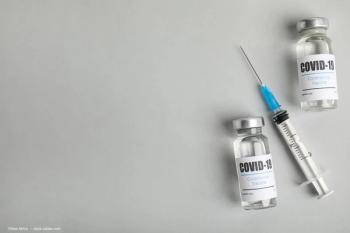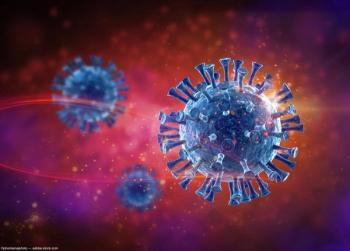
Companies unveil customer initiatives to combat COVID-19 crisis
As the COVID-19 pandemic continues to escalate in the United States and across the globe, companies have announced a series of initiatives, programs, and products designed to support customers, ophthalmologists and patients.
As the COVID-19 pandemic continues to escalate in the United States and across the globe, companies are developing products and programs to help customers and patients deal with the outbreak.
Topcon Healthcare has announced a series of initiatives and programs designed to support its customers.
Ophthalmologists rely heavily on physical examination during patient consultation, creating some concern for the potential spread of COVID-19 from patients. The ophthalmologist is close to the patient during the slit lamp microscope examination, with droplets from a cough or sneeze easily covering the distance between patient and ophthalmologist.
The American Academy of Ophthalmology (AAO) issued an alert last month suggesting the virus can cause conjunctivitis and could be transmitted through aerosol contact with the conjunctiva, putting ophthalmologists on the front line, potentially being the first healthcare providers to evaluate a patient potentially infected with the disease.
Ophthalmologists and optometrists must be in close contact with patients while performing an exam and are, therefore, unable to maintain the CDC recommended distance of six feet. In order to combat this and prevent the transmission of respiratory illnesses,including COVID-19, Topcon is offering its slit lamp customers a free breath shield that fits onto their instrument and provides a first line of defense for both healthcare providers and patients.
The shields, designed to reduce exposure to airborne contaminants, are available while supplies last. A protective barrier, they have not been proven to prevent the coronavirus or other infectious diseases. To register to receive the Topcon Breath Shield, customers can visit:
Topcon also has developed ways for customers to connect virtually with the company in the absence of tradeshows and face-to-face communications.
The Association for Research in Vision and Ophthalmology (ARVO) has cancelled its annual meeting, to have taken place May 1-7 in Baltimore, and the American Society of Cataract and Refractive Surgery has cancelled its annual meeting, scheduled for May 15-19 in Boston. As other tradeshows, conferences and exhibitions around the world continue to be postponed and travel restrictions become more widespread, Topcon is offering virtual sales demos so that customers are able to connect and continue to receive the service they deserve, in a healthy, uncompromising way.
Topcon Healthcare will host an online Expo from 8 a.m. to 8 p.m. EST March 26-27. This event will give customers a "virtual tradeshow" from the comfort of their home or office without jeopardizing their health and well-being. TopconExpo.com will offer special sales incentives to customers while providing live sales support with clinical experts ready to answer any questions they might have.
John Trefethen, global vice president of marketing and product design, noted that the company is leveraging its full technology and resources to alleviate some of the burden this pandemic has placed on our customers.
“Now more than ever, we need to find ways to support one another and provide new methods for our customers to interact with us,” he said. “We hope these programs will allow them to continue running their practices while providing optimal care for their patients in the most safe and effective way possible.”
Coronavirus diagnostic
Avellino announced it is adding additional production shifts for its newly developed coronavirus diagnostic, the is in increasing demand by health systems, public health services, and first-responders because of its speed, accuracy, and ability to detect coronavirus in patients who are asymptomatic. In order to meet growing public health demand, the company is temporarily suspending sequencing operations of its AvaGen genetic test that identifies the risk of developing keratoconus and the presence of corneal dystrophies. Operations for the AvellinoCoV2 test will expand into the genetic diagnostics lab as used for the company’s newly released AvaGen test used by ophthalmologists and optometrists to diagnose and monitor patients with keratoconus and other corneal dystrophies. The AvellinoCoV2 test helps clinicians diagnose COVID-19, the disease caused by a SARS-CoV-2 virus infection, by identifying and isolating the genetic markers as approved by the CDC and the FDA.
Avellino Group Chairman Gene Lee noted the company appreciates the support from eye-care professionals who are using the AvaGen genetic test to care for their corneal patients.
“We understand the breakthrough importance of the AvaGen test in treating patients with complex corneal conditions,” he said. “Avellino will restart production of the AvaGen genetic test as soon as we have fulfilled our public health obligation surrounding the coronavirus pandemic.”
On March 5,
The test must be ordered by a physician and cannot be made available directly to the public. The test is performed in the physician’s office or at a public collection facility by collecting cell samples from the back of the patient’s throat and the nose via swabs. Samples are then sent by the healthcare provider to Avellino’s CLIA certified high-complexity molecular testing laboratory facility in Menlo Park, NJ, for testing.
Tests take about 1.5 to 3 hours to perform. Negative results are sent back immediately to the physician and/or public health officials who ordered the test. Positive results are subject to secondary confirmation testing. Results may be available in as little as six hours or the next day in most cases.
The AvellinoCoV2 patent pending test identifies two N gene markers that test the SARS-CoV-2 virus expression. Original CDC guidance specified that coronavirus testing required three specific genetic parts. Avellino has confirmed through its validation process that only two of these parts are necessary in identifying COVID-19. As a result, the company has the technology today to quickly identify the two genetic parts required to confirm the presence of COVID-19. A genetic test provides clinicians and public health officials with another diagnostic tool.
That said, while a positive result from the AvellinoCoV2 test is indicative of an active infection, it does not necessarily rule out a bacterial or other viral infection. However, a negative result from the rest does not rule out the presence of the coronavirus, which causes COVID-19. This can be the result of potential issues with sample collection and other factors common to all diagnostic tests that can affect results.
Clinicians are urged to use clinical observation, patient history, and their best medical judgment in making a final diagnosis and treatment decisions.
Testing is limited to laboratories certified under the Clinical Laboratory Improvement Amendments of 1988 to perform high complexity tests. EUAs allow for the early availability of important diagnostic tools.
Douglas Bryant, president and CEO of Quidel, noted that the EAU for the Lyra assay allows the company to join the global fight against the COVID-19 outbreak by providing healthcare workers in highly complex laboratories with a fast, accurate tool to diagnose patients infected with the novel coronavirus.
“The feature benefits of the test system and the Lyra product will contribute substantially to our country’s efforts to fight this pandemic,” he said. “We are proud to have quickly developed this assay in mere weeks, and to have manufactured kits, several of which are in transit to customers. Anticipating significant demand, we are allocating kits across a broad set of customers as we ramp production.”
The Lyra SARS-CoV-2 assay is currently only available for sale in the United States and can be purchased either through Quidel’s salesforce or Cardinal Health.
Newsletter
Don’t miss out—get Ophthalmology Times updates on the latest clinical advancements and expert interviews, straight to your inbox.





























